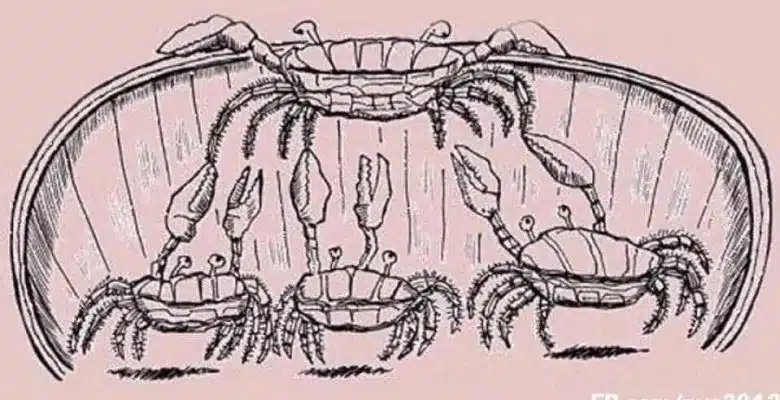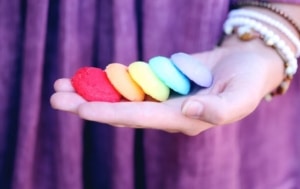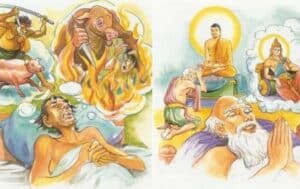Jealousy is a feeling that we have all experienced at some point in our lives, whether it be in our personal or professional relationships. It is a negative emotion that can consume us and lead to harmful actions towards others.
But have you ever considered the damaging effects of jealousy on yourself? Not only does jealousy harm the relationships we have with others, but it also poisons our own minds and prevents us from achieving personal growth and happiness.
In this article, we will explore why we should not be jealous of each other and how letting go of jealousy can lead to a more fulfilling and joyful life. So, let’s dive into the reasons why jealousy is a toxic emotion and how we can overcome it.
The fable about the crab

In this fable, we will learn a lesson about how jealousy affects our lives. If you have ever gone crab hunting, you will realize that if you put a crab in a bamboo basket, you need to cover the basket; otherwise, the crab will crawl out.
However, if you catch more crabs and put them in the basket, there is no need to cover the basket again. No matter how hard the crabs struggle, they cannot crawl out. Why does this happen? It’s because of jealousy. When there are more than two crabs inside the bamboo basket, each one scrambles to crawl towards the exit.
As soon as one crab crawls to the mouth of the bamboo basket, the remaining crabs use their claws to grip that crab and pull it down to the bottom, letting another crab crawl up. In the end, not a single crab can get out of the uncovered bamboo basket.
This is the law of the crab, containing a philosophy worth pondering. In modern society, this is also the mentality of many people. Because they are not happy themselves, they want others to be unhappy. They can’t climb up, so they have to pull others down, making it impossible for others to climb up.
People in lower social classes often feel jealous
People from lower social classes often harbor feelings of jealousy because of their own inadequacies, and they do not want others to succeed. They tend to engage in slandering, jealousy, and exposing their opponents.
Because they do not want others to have a better life than themselves, they are determined to find ways to bring others down to satisfy their weakness and greed for vain fame.
In his detective novel “Akui,” Keigo Higashino wrote:
“I hate you for realizing my dreams, I hate you for having a better life than me, I hate you for being so bad at first but now having such a bright future. I also hate my own weaknesses, I hate that I don’t have enough luck or talent. I give all my resentment to you, using it all to hate you.”
Jealous people always experience fatigue in their lives, making it difficult for them to find happiness when their minds are consumed by negativity. Buddhism teaches that holding a grudge in one’s heart is like drinking poison and hoping someone else will die.
Being jealous of others also harms oneself

I would like to share a story with you about a man who used to live peacefully with his neighbors. However, due to a small disagreement, the two sides became gradually distant and started to conflict.
One day, the man met a god who pulled him aside and said, “I can grant you a wish, but whatever you wish for, your neighbor will receive twice as much.”
The man started to calculate in his mind, “If I wish for a house, my neighbor will get two, if I wish for 1 million dollars, my neighbor will get 2 million. In the end, he will be happier than me!”
With this thought, the man quickly made his wish to the god: “I want you to take one of my eyes!”
Jealous towards others who have a better life than you and wanting to destroy them will only harm yourself. As the saying goes, “Those who love fresh flowers can always smell the fragrance of flowers, those who secretly plant thorns will eventually be pricked by thorns.”
Human life is not a competition to determine winners and losers; everyone has their own path. If you cannot accept others having a good and happy life, you will be the first person to be destroyed. Those who genuinely want to do good for others will receive a well-deserved reward.
Smart people help each other, fools step on each other

The proverb “Smart people support each other, only fools trample each other” describes the relationship between people in life very well. The more intelligent people are and the higher their social class, the better they know how to support each other.
They help others and consider the joy, happiness, and success of others as their own. They empathize with the success of others, which is known as mudita in Buddhism.
A parable that carries a rather meaningful message goes as follows: a young man asks God if there is a difference between heaven and hell. God takes him on a tour and shows him the inside of hell, where a group of people sits around under a dim light. Despite having a long spoon, they cannot use it to scoop up the soup in front of them and put it in their mouths. They are so hungry that they are emaciated, but cannot drink a sip of soup.
In contrast, in heaven, each person also holds a long spoon in their hand. But they use that spoon to scoop up the soup and put it in the other person’s mouth, and each person shares the soup. Therefore, in heaven, everyone is full of food, rosy-faced, extremely satisfied, and happy.
People with wisdom understand that supporting each other is the way to sustainable success. People living in the world should help each other, and in doing so, they can have a happy life.
An intellectual person with an honest heart who always helps others is someone who knows the principle “many hands make light work.”
On the other hand, someone who is jealous of others, does not want others to succeed, and is a coward, will find that wherever they go, it is like hell. If we let go of our jealousy and instead help and support others to have a better life, it is also a way to improve our own lives. Jealousy is the poison of the soul.





